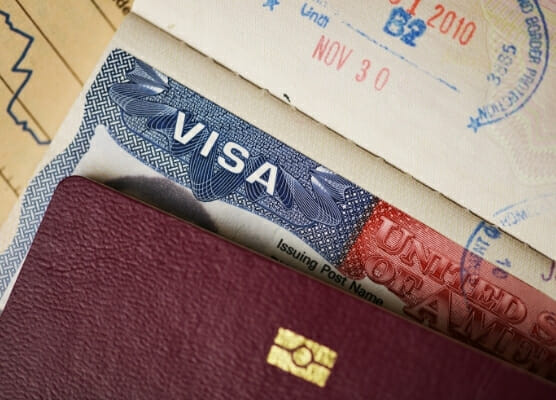A spate of lawsuits aims to stop Trump’s H-1B visa restrictions
Business and technology industry interests launched a litigation blitz to halt the Trump administration’s sweeping overhaul of the H-1B visa system, announced in October. A suit filed by the Bay Area Council, which represents Silicon Valley and San Francisco technology firms, alleges new restrictions are illegally intended to “destroy the H-1B program.”

The restrictions cripple the H-1B visa program
The new rules from the Departments of Labor and Homeland Security, fast-tracked to take effect in December, will restrict employers’ ability to bring highly skilled foreign nationals to work in the United States using H-1B visas.
Among other provisions, the rule:
- Raises the minimum wages H-1B visa holders must be paid.
- Narrows who qualifies for a visa, based on education and experience.
- Limits how long visa holders can work in the U.S.
The Trump administration claims it is protecting American workers
Trump administration officials say the restrictions are necessary to “combat the use of H-1B workers to serve as a low-cost replacement for otherwise qualified American workers.” Trump administration officials have long complained that employers use H-1B visa holders to perform work that U.S. citizens should do. The rules are expected to cut the 85,000 H-1B visas issued each year by about one-third.
In addition, The DHS statement said the rule would enhance its ability “to enforce [H-1B visa] compliance through worksite inspections.”
Impacted businesses are fighting back
Business groups such as the U.S. Chamber of Commerce disagree with the administration’s claims and have repeatedly filed lawsuits to combat efforts to restrict H-1B visas. A statement from the U.S. Chamber said the new rule has “the potential to inflict serious harm upon many American companies.”
Foreign-born IT engineers and software coders commonly come to the U.S. on H-1B visas to work in the tech industry. Last year, more than 5,500 new H-1B workers were hired by Apple, Facebook, and Google alone.
A flurry of other lawsuits was filed by the U.S. Chamber of Commerce, the National Association of Manufacturers, California Institute of Technology, and Stanford University. The lawsuits allege the administration’s rules violate the statutes that created the H-1B visa system. The Bay Area Council lawsuit claims the visa restrictions would “virtually foreclose the hiring of new individuals via the H-1B program.”
Some restrictions are already in effect
While the outcome of these cases remains up in the air, a separate interim rule from the Department of Labor already implemented the new H-1B compensation requirements. Companies that currently employ or are planning to hire workers with H-1B visas should consider consulting an immigration attorney.
Online resource: Read the interim final rule in the Federal Register at https://tinyurl.com/2020-H-1B-visa-rule. That entry also includes information on how to submit comments on the rule.





